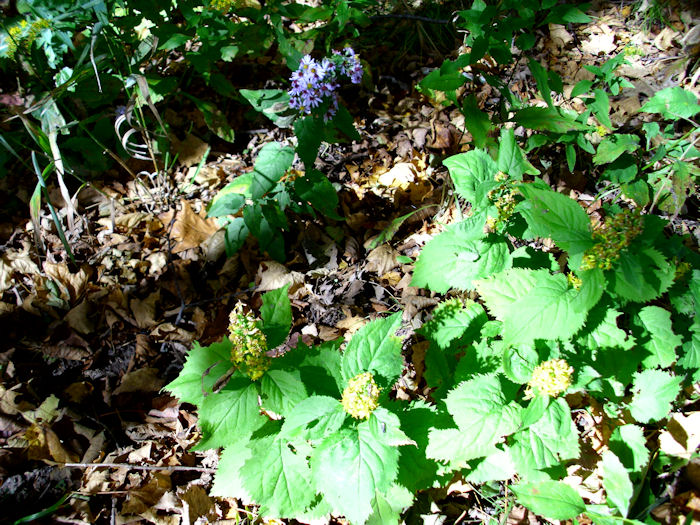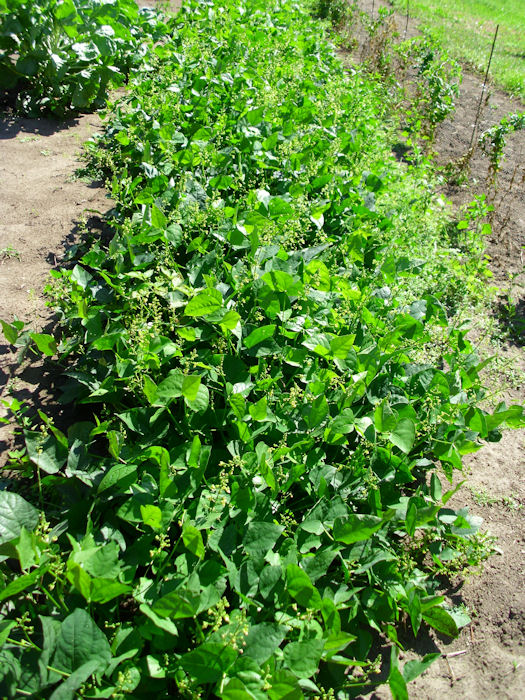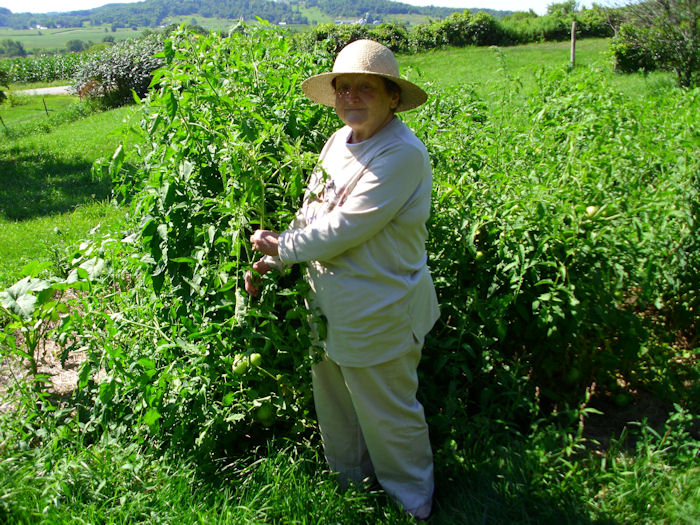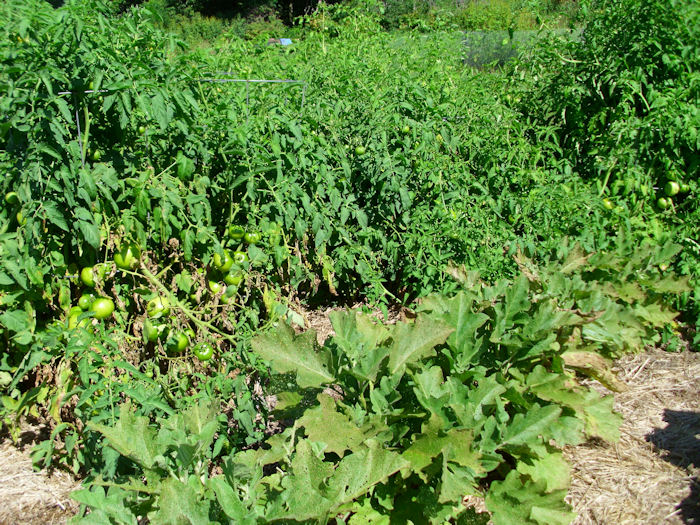A number of my posts deal with the unexpected or a way of viewing the garden in a way that puts things in perspective. For example, a recent post, Every Year is a Good and a Bad Year, discusses how each year can produce unexpected results in the garden. Planting a wide range of vegetables is your only way to deal with the potential yield differences from year-to-year. Of course, diversity is good for your health and the soil as well. This post looks at the same issue from the perspective of the orchard.
The orchard is different from the garden in that you plant an orchard for a long term yield. Our first pear trees were planted 11 years ago. When you make such a long term investment, you need to place an even stronger emphasis on biodiversity. For example, this year started extremely wet. A frost occurred while the trees were in bloom—killing many of the blossoms. To make things worse, we had golf ball-sized hail after the fruit had set. The hail actually knocked some of the fruit off of the trees. After spring, however, things got incredibly dry, making it even less likely that the fruit trees would do well. So, I had expected a very small harvest this year (and I wasn’t disappointed). The largest pear harvest we’ve had was 975 pounds. This year the trees produced 300 pounds of standard sized fruit, or so I thought.
Our Luscious pears are generally quite small. However, they’re so incredibly sweet and juicy that they’ve become a favorite of ours. Normally, we leave these pears on the trees for later use. In order to can a pear, you must pick it just a tiny bit green, when the pear is still hard enough to survive the canning process. Pears used for juice, as our Luscious pears are, generally need to wait until they’re almost overripe—at the absolute peak of sugar and taste. Consequently, I didn’t pay as much attention to the Luscious pears as I should have. The interesting outcome is that we now have standard sized pears on a tree that isn’t supposed to have them. The pears are between two and four times larger than normal.
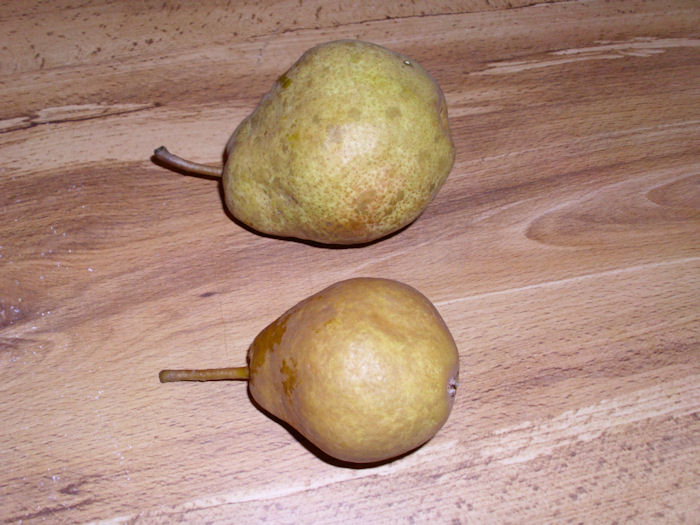
The upper pear is representative of what the Luscious pear as produced this year. The lower pear is what we get on most years. Not only is the top pear larger, it weighs three times as much as the lower pear. The difference is enough that we’ll be able to can the Luscious pears that are still green enough. In addition, the Luscious pear trees normally produce around 80 pounds of fruit. This year they produced 120 pounds of fruit, so we have a lot more fruit than I had originally thought—a total of 420 pounds.
In addition to the Luscious pear anomaly, the Parker pears produced well this year. Normally, we have fire blight problems with the Parker pears, but there was almost no fire blight at all this year because it was so dry. Trees that normally produce well, such as the Moonglow and Clapps, didn’t do well this year because of the dryness. The point is that you need a variety of trees if you want a good harvest every year. The trees also have to be compatible. If you check the links I’ve provided in this article, you’ll see that all of these trees require a pollinator tree other than itself. The Luscious pear is a male tree, while the other pears in the orchard are all female. All of them produce fruit, but to get an optimal yield, you need to have pollinators of the right type.
The lesson I keep relearning is that it’s essential to check everything before making a judgement. If I had picked the Luscious pears earlier this year, we would have had more fruit for use in pear chunks (minted, plain, or spiced). As things stand now, we’ll probably end up with juice for wine and drinking, some pear jam, and some additional pear sauce because the fruit is too ripe to use for pear chunks (something that our larder was lacking). Let me know if you have any questions at [email protected].

